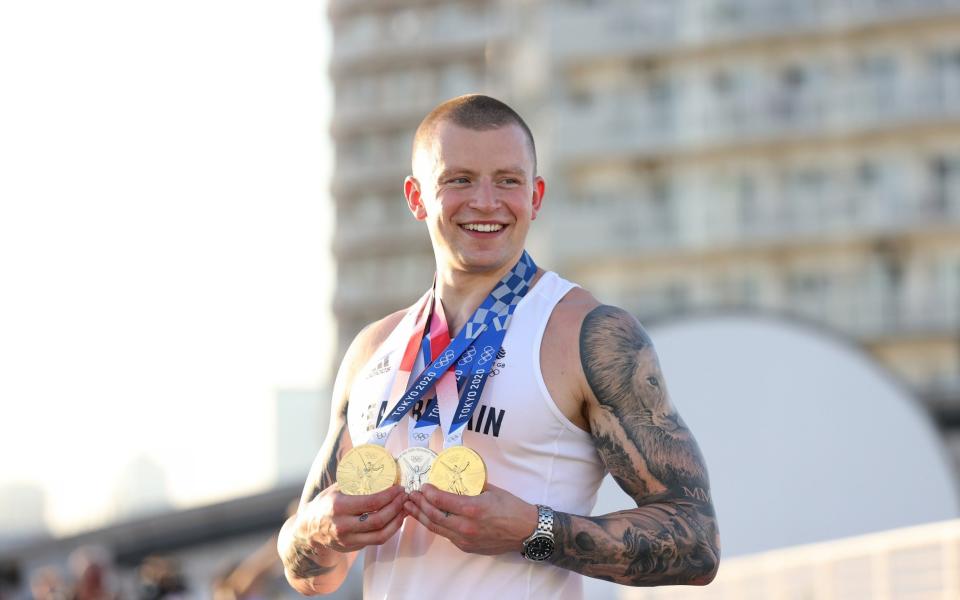Adam Peaty warns Team GB's Olympians need incentives: 'Patriotism does not pay the bills'

Great Britain’s Olympic and Paralympic heroes should be incentivised with cash bonuses as part of urgent investment to keep young people in sport, Adam Peaty has said.
Peaty told MPs at a parliamentary hearing that elite athletes “fly the flag but can’t pay the bills with patriotism” and repeatedly warned of lost talent, particularly in more deprived areas, at a time when leisure centres are facing closure.
The triple Olympic gold medallist also highlighted how other countries offered financial rewards for medal success, notably the United States and Singapore, whose system pays one million Singapore dollars (£551,000) to a gold medal winner.
“Give me some of that please,” Peaty said, smiling, before urging the Government to do more to “fill in the cracks” and not rely so heavily on National Lottery income.
“I think if we had more incentives – obviously through the National Lottery – but have the incentive at the end with the Government, saying, ‘Look, if you’ve won a gold medal, a medal for the country, you got us to a final, here’s a little bit of a thank you’,” he said.
“I think it comes down to the question, ‘How much is a gold medal worth to the country?’ You are getting a bargain. The Government and the country reap those benefits. I think the Government can do more to support the elite and definitely the grass roots. Stop closing the leisure centres, because it will bite you.”
About a third of council-run leisure centres said that they were facing the prospect of permanent closure, according to research that followed the third national lockdown this year. In Cornwall, the county council is about to vote on proposals to shut four of the region’s 12 indoor public swimming pools.
About 60 per cent of UK Sport’s funding for elite athletes derives from the National Lottery, with the Government having pledged a further £77.2 million for the cycle to the Paris Olympics and Paralympics in 2024.
“I came from a working-class family – no money for sport, no money really for anything,” said Peaty, who described Lottery funding as “a lifeline”.
It is, however, only selectively spread and Peaty is particularly concerned for young athletes between the ages of 12 and 18 who are outside the funding system but have no other financial support.
Lauren Rowles, a European, world and double Paralympic champion in rowing, told MPs that there was “a fear culture” over funding with many athletes almost entirely dependent on the discretionary “athletic performance award”. “I have had only one sponsor in my seven years on the team,” she said.

 Yahoo Sport
Yahoo Sport 





































